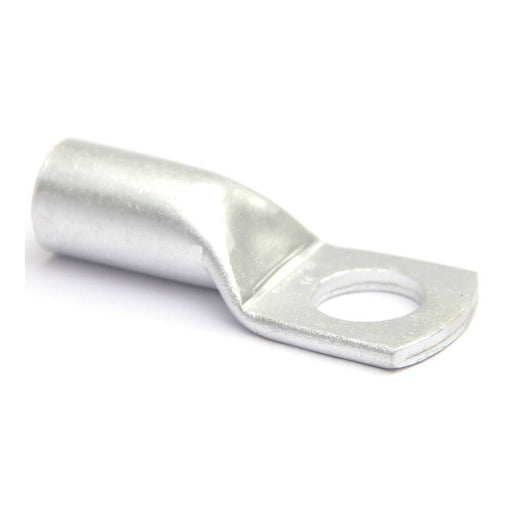Buy Dowells Lugs and Glands — Electrical Connections
Lugs and glands are components used in electrical and cable systems to ensure proper connections, cable management, and protection. Here's an overview of each:
Lugs (Cable Lugs)
-
Definition: Lugs, also known as cable lugs or terminal lugs, are metal connectors used to terminate electrical cables. They come in various shapes and sizes, and their primary purpose is to connect a cable to a device, another cable, or a terminal.
-
Types: There are several types of lugs, including copper lugs, aluminum lugs, and bi-metal lugs. These lugs are typically selected based on the material of the cable and the terminal they will be connected to.
-
Applications: Lugs are commonly used in electrical panels, power distribution systems, and various electrical devices to ensure a secure and conductive connection. They are crimped or soldered onto the end of a cable to make it compatible with a specific terminal or connector.
- Advantages: Lugs help in creating a reliable and durable electrical connection. They also provide mechanical support to the cable, reducing the risk of damage or strain on the cable itself.
Glands (Cable Glands)
-
Definition: Cable glands, often referred to as cable connectors or cable entry devices, are mechanical devices used to secure and protect the end of an electrical cable where it enters an enclosure or piece of equipment. They serve to prevent the entry of dust, moisture, and other contaminants into the enclosure and also provide strain relief for the cable.
-
Types: There are various types of cable glands, including those for armored cables, non-armoured cables, and explosion-proof glands designed for hazardous environments. They come in different materials, like metal, plastic, or rubber, depending on the application and environmental conditions.
-
Applications: Cable glands are used in a wide range of industries and applications, including manufacturing, construction, oil and gas, and telecommunications. They are crucial for maintaining the integrity of electrical and data connections by ensuring cables are securely and safely connected to equipment or enclosures.
- Advantages: Cable glands provide a watertight and dustproof seal around the cable entry point, preventing potential damage or contamination. They also offer strain relief, which helps to reduce tension on the cable, thereby preventing it from being pulled out or damaged due to movement or vibrations.
Frequently Asked Questions
Q1. What types of cable lugs are available?
Ans. There are various types of lugs, such as ring-type, fork-type, pin-type, and spade-type, each suited to specific applications and terminal connections.
Q2. How do I choose the correct size of cable lug?
Ans. The lug size should match the cable size. The diameter of the lug's barrel (crimp area) should fit the cable's diameter, and the hole size should match the terminal or bolt where it will be connected.
Q3. What size of cable gland do I need?
Ans. You’ll need to measure the cable diameter to choose the correct gland size. The gland size should match the outer diameter of the cable.
Q4. What material should I choose for my cable gland?
Ans. For indoor or non-corrosive environments, non-metallic glands may suffice. For harsh or outdoor environments, brass or stainless steel glands are more durable.






